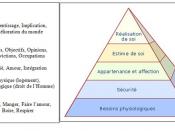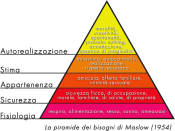HistoryFrederick Herzberg (1923 - 2000) spent the last half of his life as a professor at the University of Utah. Prior to that, he had served in the United States Army, later joining the staff of the Psychological Services of Pittsburgh, during which he and his colleagues began to compile data for what would eventually become The Motivation to Work, a landmark publication which proposed what would become known as the "Motivation-Hygiene" or, more informally, the "Two-Factory" theory (A Modest Construct, 2008). This data, in its most complete form, spanned 12 separate rounds of interviews and investigations and included the answers of over 1,600 respondents, and used a relatively new and liberal form of interview.
The results of the interviews revealed that the top six factors leading to job dissatisfaction were: company policy, supervision, relationship with boss, work conditions, salary, and relationship with peers. Conversely, the top factors leading to job satisfaction were: achievement, recognition, the work itself, responsibility, advancement and growth (Business Knowledge Center, 2007).
If the Motivation-Hygiene Theory holds true, Herzberg believed that management not only must provide factors that avoid dissatisfaction, but also must provide factors that cause satisfaction. The reason behind this is that Herzberg believed that while the terms satisfaction and dissatisfaction seem evidently opposite, the reality of all things is that the factors, whether positive or not, provided two different types of needs: physiological and psychological.
Furthermore, Herzberg suggested that job enrichment is necessary in motivating employees and is an ongoing practice in successful organizational management. He recommended the following: the job should have sufficient challenge to employ the full ability of the employee; employees who demonstrate increasing levels of ability should be given higher levels of responsibility; if a job cannot be designed to use an employee's full abilities, then the company should...


